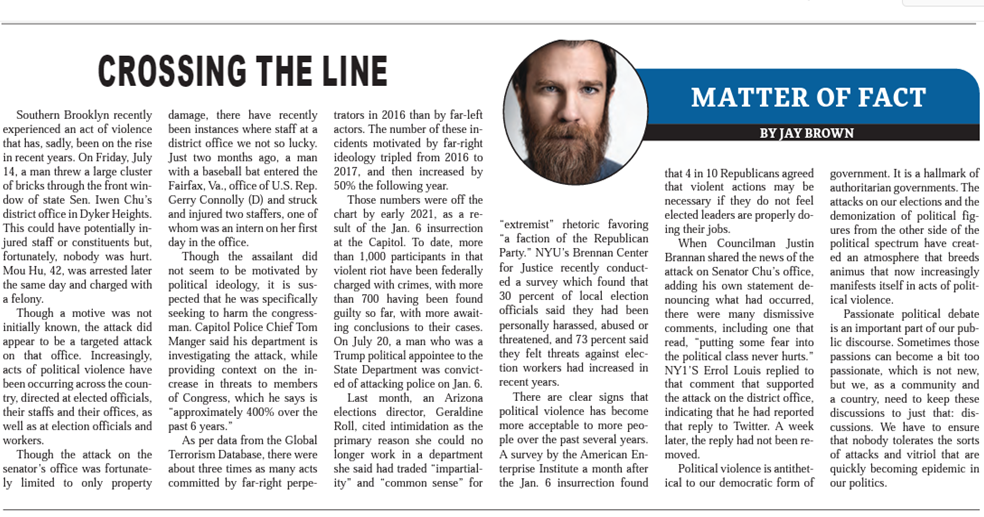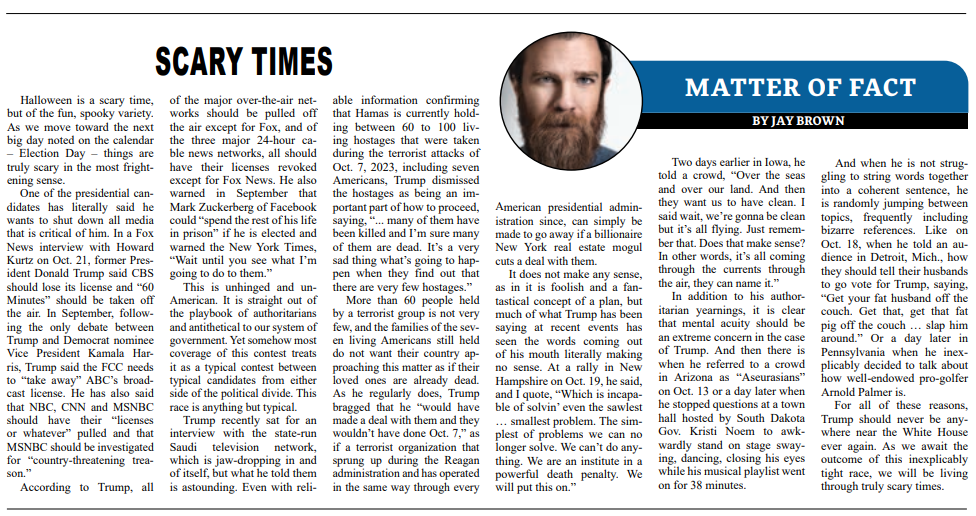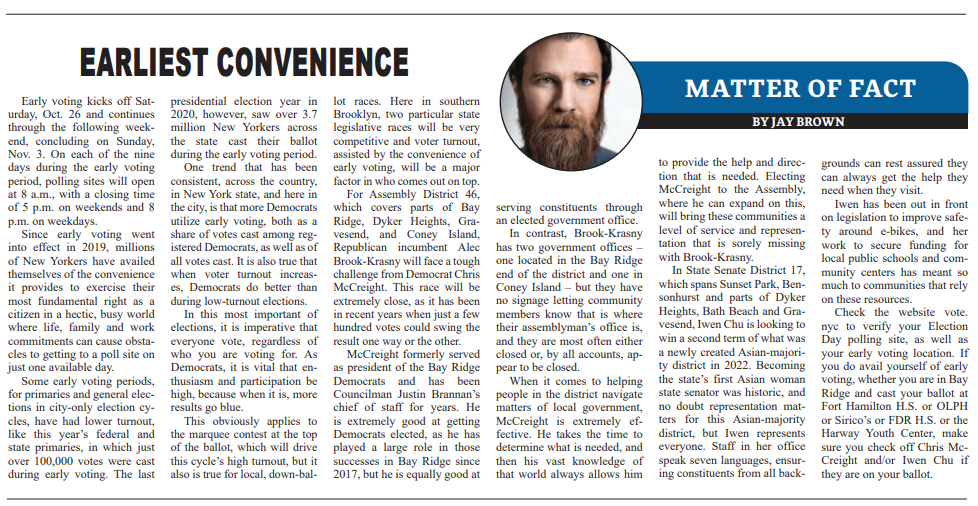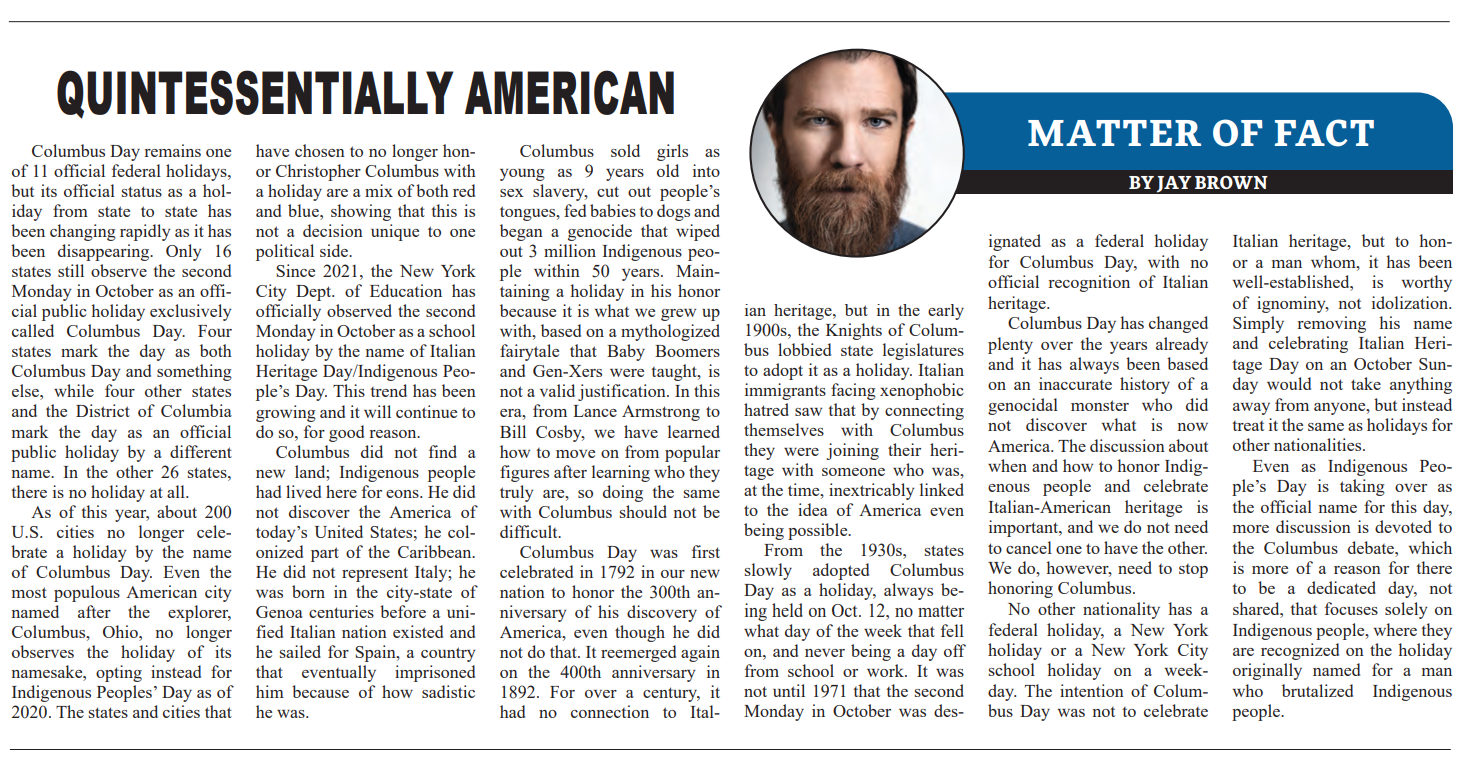This column, from the weekly opinion piece MATTER OF FACT, first appeared on BrooklynReporter.com, the Home Reporter and Spectator dated July 28, 2023
Southern Brooklyn recently experienced an act of violence that has, sadly, been on the rise in recent years. On Friday, July 14, a man threw a large cluster of bricks through the front window of Senator Iwen Chu’s district office in Dyker Heights. This could have potentially injured staff or constituents but, fortunately, nobody was hurt. Mou Hu, 42, was arrested later the same day and he was charged with a felony.
Though a motive was not initially known, the attack did appear to be a targeted attack on that office. Increasingly, acts of political violence have been occurring across the country, directed at elected officials, their staffs, and their offices, as well as at election officials and workers.
Though the attack on the senator’s office was fortunately limited to only property damage, there have recently been instances where staff at a district office we not so lucky. Just two months ago, a man with a baseball bat entered the Fairfax, VA office of Congressman Gerry Connolly (D) and struck and injured two staffers, one of which was an intern on her first day in the office.
Though the assailant did not seem to be motivated by political ideology, it is suspected that he was specifically seeking to harm the congressman. Capitol Police Chief, Tom Manger, stated that is department is investigating the attack, while providing context on the increase in threats to members of Congress, which he says is “approximately 400% over the past 6 years.”
As per data from the Global Terrorism Database, there were about three times as many acts committed by far-right perpetrators in 2016 than by far-left actors. The number of these incidents motivated by far-right ideology tripled from 2016 to 2017, and then increased by 50% the following year.
Those numbers were off the chart by early 2021, as a result of the January 6 insurrection at the Capitol. To date, more than 1,000 participants in that violent riot have been federally charged with crimes, with over 700 having been found guilty so far, with more awaiting conclusions to their cases. On July 20, a man who was a Trump political appointee to the State Department was convicted of attacking police on January 6.
Last month, an Arizona elections director, Geraldine Roll, citing intimidation as the primary reason she could no longer work in a department she said had traded “impartiality” and “common sense” for “extremist” rhetoric favoring “a faction of the Republican party.” NYU’s Brennan Center for Justice recently conducted a survey which found that 30 percent of local election officials said they had been personally harassed, abused or threatened, and 73 percent said they felt threats against election workers had increased in recent years.
There are clear signs that political violence has become more acceptable to more people over the past several years. A survey by the American Enterprise Institute a month after the January 6 insurrection found that 4 in 10 Republicans agreed that violent actions may be necessary if they do not feel elected leaders are properly doing their jobs.
When Councilman Justin Brannan shared the news of the attack on Senator Chu’s office, adding his own statement denouncing what had occurred, there were many dismissive comments, including one that read, “putting some fear into the political class never hurts.” NY1’S Errol Louis replied to that comment that supporting the attack on the district office, indicating that he had reported that reply to Twitter. A week later, the reply had not been removed.
Political violence is antithetical to our democratic form of government. It is a hallmark of authoritarian governments. The attacks on our elections and the demonization of political figures from the other side of the political spectrum has created an atmosphere that breeds animus that now increasingly manifests itself in acts of political violence.
Passionate political debate is an important part of our public discourse. Sometimes those passions can become a bit too passionate, which is not new, but we, as a community and a country, need to keep these discussions to just that: discussions. We have to ensure that nobody tolerates the sorts of attacks and vitriol that is quickly becoming epidemic in our politics.




